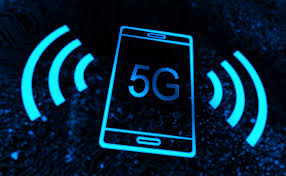

image ©computing.co.uk
5G will be delivered (in UK) using a mix of 3 spectrum bands :
- 700Mhz - to provide the coverage over large areas of the UK
- 3.4GHz - 3.8GHz - to provide capacity for 5G in the large demand urban areas. This frequency does not pass through walls as well as lower frequencies but does have much greater capacity
- 24GHz to provide ultra high capacity in small cells.
The first stage of the OfCom auction was for bandwidth at 3.4GHz with some extra 4G frequency at 2.3MHz. This was completed on 5th April 2018
| 2.3GHz | 3.4-3.6GHz | Paid | |
| O2 | 40MHz | 40MHz | 205,896,000 + 317,720,000 |
| Vodafone | 50MHz | 378,240,000 | |
| EE | 40MHz | 302,592,000 | |
| Three | 20MHz | 151,296,000 |
- O2 purchased 40MHz in the 3.4GHz band. They also purchased the 40MHz at 2.3GHz. The other MNOs have freqyuency around this range (2.6GHz.)to use with 4G.
- Vodafone bought 40MHz of the higher frequency
- EE bought slightly less of the higher range spectrum
- Three bought the least but they owned a lot of frequency at the higher level following their purchase of UKBroadband. Although OfCom has not yet allowed them to use their frequency for 5G
A second auction will be held in Spring 2020. This will be for frequency in the 700MHz range with similar properties to the 800MHz / 900MHz used in 3G or 4G. This has potential cover larger areas and will be used in non-urban area.s The auction comes with some obligations namely the requirement to cover more households, more of the area of the UK and install more masts. Details of the auction, and the obligations are not clear (March 2020).
(Spring 2020)
All of these initial 5G networks are running on the 3.4GHz frequency in urban
areas. Later all the MNOs will expand the number of urban locations where 5G is
available. The release of the 700MHz frequency will allow coverage in more areas.
To get some of the significant uRLLC and mMTC application we will have to wait
until some 24GHz frequency is released.
© mobilephonetechnology.co.uk all rights reserved 2017-2026



